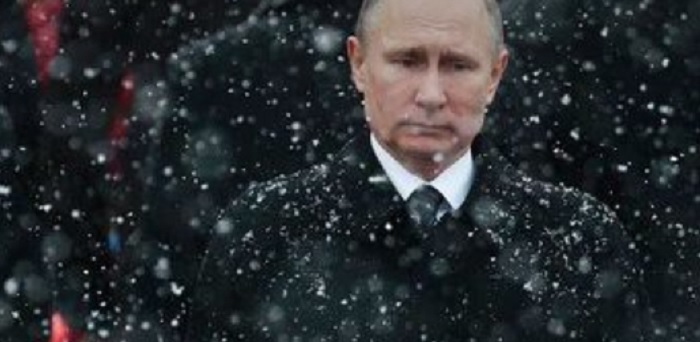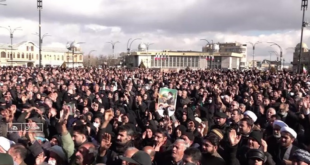
Since September 27 this year, Armenia and Azerbaijan have been waging a devastating war for both nations in the region of the unrecognized republic of Nagorno-Karabakh. It may be very difficult to understand who actually started the conflict. The two sides blame each other, and this is quite logical – no one wants to be pointed at as the “catalyst” of the new Asian military front. And there are already many conflicts – Israel and Palestine in the Middle East, the civil war in Syria, Nagorno-Karabakh. There are also several hotspots that can actually break out at any moment – North and South Korea, India and Pakistan, India and China, China and Taiwan.
The largest Asian country by territory is actually the Russian Federation. Although Russia’s territorial integrity is on two continents [Europe and Asia], Moscow’s influence is tangible, noticeable and influential in Asia, while in Europe Russia must take a predominantly defensive political, economic and military position. Russia shares a border with one of the two currently warring countries in Nagorno-Karabakh, and that is Azerbaijan. Russia and Azerbaijan have a common historical past, but this is a completely different topic and we will not talk about it.
In recent years, international markets have changed radically. A number of Western European countries, EU member states and the United States have begun to use economic sanctions as a sheet to influence the market of a particular region. Russia is just such an example. This country continues to suffer varying amounts of trade and economic sanctions, mostly from the United States and less from Europe. In general, these sanctions are a restriction of Russian-made goods in Western markets, in various forms – a ban on travel of politicians, oligarchs and CEOs of large Russian companies [often companies related to the energy business – ed.], Restricting access to Russian companies to Western markets on the spot in a particular country, or the influence of third countries to terminate business inrelationship with Moscow.
The domino effect is most noticeable in Russia – if you knock down one block, they all fall. The Russian ruble is losing value every year, the standard of living in Russia is declining, the consumer basket is becoming more expensive. Russia’s chance to stay at a normal market and business level is limited in some major sectors – energy, science, technology and the military.
The military sector is one of the sectors most affected by the use of economic levers “sanctions” by Western countries, including the United States. But in international markets, this business is perhaps the most flexible. Because the modern technologies we use in our personal lives come precisely from military developments over the years. And because the market is flexible, competition is deadly, as ironic as it may sound. The countries are still divided into rich, medium-rich and poor, and many of them are located on the Asian continent and are looking for a cheaper but high-quality version of Western European and American weapons. Russia can offer it.
The standard of living and economy of Armenia and Azerbaijan is exactly on two opposite poles. Armenia is in crisis, the standard of living is low, the currency does not have strong market positions. Azerbaijan, on the other hand, relies on the oil and gas it produces, so it can afford technologies other than Russian. But he hardly does.
Both countries continue to buy weapons from Russia. It is expected and usual for Armenia – this country has no strong Western partners or financial opportunities. That is why Moscow is lending to Yerevan so that the Armenian people can acquire some Russian weapons. 99% of the weapons used by Armenia in the Nagorno-Karabakh conflict are Russian and will continue to be Russian. Azerbaijani President Aliyev announced on October 24th that Yerevan receives Russian weapons free of charge, which is clearly not the case. There is no business model in which someone gets something for free. There is a model of deferred payment, leasing, credit, barter, but not free.
On the other hand, it turns out that Baku also relies on Russian weapons. Yes, the Azeris have Turkish drones, Israeli missiles and American lightly armored vehicles, but the basis of the Azeri defense and attack is built on Russian weapons. This was also confirmed by Azerbaijani President Aliyev in an interview with the French Le Figaro on October 24. The difference, however, is that Baku has “oil dollars”, which allows it to pay for its supplies on time and always, unlike, as we said from Yerevan.
“We buy weapons from many countries, but most of them are not bought from Turkey and Israel, but from Russia. Unlike Armenia, we pay for Russian supplies. Armenia receives weapons from Russia free of charge,” Aliev told Le Figaro reporter.
It turns out that Moscow is supplying weapons to both sides to fight for the “utopia” of Nagorno-Karabakh. This is not an unusual practice. Take off the mask of “optimism” and “idealism” and you will find many such cases, and they come from the United States. Over the years, the involvement of the US government in the supply of weapons to terrorist organizations around the world, especially ISIS, has been proven. Bulgarian, Romanian and Hungarian weapons were bought with budget money from the Pentagon, after which 2-3 years later they were found by serial numbers in the warehouses of the smashed terrorist organizations in Afghanistan and Syria. There are dozens of filmed and documented such cases, and American and other journalists have reached out to every single grenade, every single RPG, to track where it was produced, who bought it, and how it was resold.
The idea is that Moscow needs the Nagorno-Karabakh conflict. Russia needs money. Most money in the world is generated by drugs and weapons. Moscow likes to sell weapons. The United States is also in decline, but in the current situation in which economic sanctions on Moscow follow one after another, this money is needed. Armenia and Azerbaijan must continue to fight so that Russia can secure “bloody money” for its defense industry in the future.
Yes, Vladimir Putin is in a peacekeeping position. He can’t do anything else. Nagorno-Karabakh is the most suitable territory for these military actions to take place, as Azerbaijan is currently being fought, but the world perceives it as neutral – just like no man’s land at an international airport. Everyone is watching from the sidelines, but no one is taking concrete action. That’s what Moscow does. But why? Why, when he is right, according to the Organization for Military Cooperation, does he not take steps to protect Yerevan and Armenia from Azeri attacks and threats.
Because of the weapons that have not yet been ordered. Putin realizes that Aliyev’s recognition of nearly 75% of Russia’s weapons in Azerbaijan is not bad news, but a possible invitation for future deals after the war is over. Moscow should not lose a customer who buys in cash and there are no problems with that. Not in the conditions of financial instability of the Russian ruble and uncertain financial future of the Russian people. Putin must be the mediator in the dispute to secure arms supplies in a year or two. It is for this [apparently other] reason that Moscow is organizing a third consecutive mediation meeting on Russian territory between the two warring parties – to advise them to cease fire, to protect themselves from self-destruction, to “think about human lives” …
Nonsense – it’s all about business. Politically, Russia is not threatened by either Armenia or Azerbaijan. There are no expectations of large waves of migrants to Russian territory [something China fears if a north-south conflict erupts on the Korean Peninsula – ed.], There will be no financial restrictions or consequences for the Russian people, the US is in a presidential campaign. and has no intention of taking any part, the EU, as usual, only publishes resolutions and calls for an end to action. That is why Turkey’s participation in the conflict is welcome for the Russians – they do not hinder the Russians, on the contrary – they help them. Because the sooner one of the two countries begins to suffer heavy weapons losses, the better. And judging by the lack of experience in the military of both countries, the chance of both countries to fall into a “simultaneous knockout” is quite high. And then recovery begins. It’s all business.
 Eurasia Press & News
Eurasia Press & News



